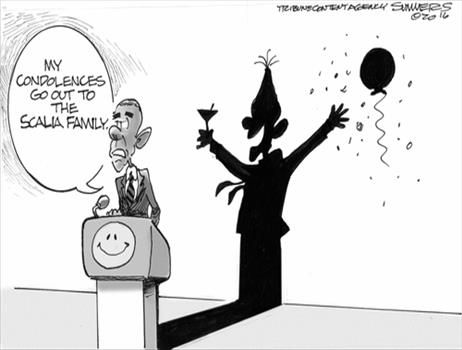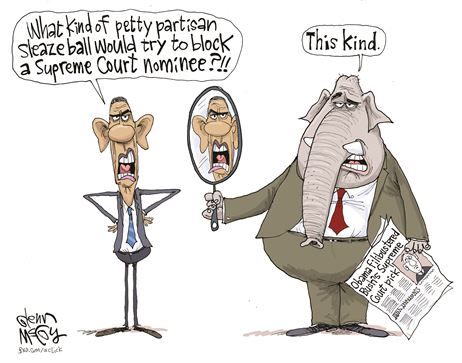#1 The Main Arguments for Common Core are Vague and Dubious
The most pressing reason for Common Core, its supporters claim, is that American school children are not prepared for the so-called “twenty-first century global economy.”
The most pressing reason for Common Core, its supporters claim, is that American school children are not prepared for the so-called “twenty-first century global economy.”
Yet the Common Core standards themselves never actually define what they mean by “twenty-first century global economy.” In reality, it is little more than a sound bite intended to scare parents. Without Common Core, we are told, those Chinese or Singaporeans or Finns are going to stomp all over us. They somehow forget that America did pretty well dominating the 19th century global economy, never mind the 20th century global economy, all without the help of a nationalized education scheme like Common Core.
“College and career readiness” is another dubious slogan used by Common Core. The problem with this slogan is that it underscores a distorted view of education. For progressives, education’s main purpose is not to teach truth, form character, or transmit the timeless principles of Western civilization. On the contrary, education’s primary purpose is to prepare citizens to be workers, to be cogs in the great “twenty-first century global economy” machine.
In his book The Story Killers, Dr. Terrance Moore points out that Common Core confuses “education” with “job training.” While every parent naturally wants their children to succeed in life and acquire material and financial security, reducing education to a jobs program cheapens the former and cripples the latter.
Both the “twenty-first century global economy” and “college and career readiness” slogans are based on the conceited notion that government bureaucrats or progressive educators can predict both the job market and new technology decades in advance. Who foresaw with any accuracy the massive economic, social, and technological changes we have seen over the last 30 years, or even the last 10 years?
#2 Common Core is based on a Materialistic, Egalitarian Philosophy
Common Core is the fruit of a long line of progressive education reformers. This process of destruction of Western education did not begin in the last few years or even decades, but way back in the so-called Enlightenment.
Prominent eighteenth and nineteenth-century philosophers and educators such as Johann Pestalozzi, Friedrich Froebel, and Herbert Spencer developed education theories that are the direct ancestors of modern schemes such as Common Core.
They were Naturalists. Naturalism is a type of secular religion that replaced the Christian God with man and so-called “reason.” They harshly attacked the influence of tradition, family and Christianity in the formation of children.
They were also radical Materialists. School subjects that did not have a direct benefit to material prosperity or that did not prepare a student to be a worker – such as philosophy or literature or languages – were useless and should be abolished.
John Dewey, the founding father of progressive American education, continued this materialistic trend here in America. For him, education was a means to create an egalitarian, socialist society, freed from the supposed “superstitions” of religion. He wrote:
“The moral responsibility of the school and of those who conduct it is to society. ...[A]part from participation in social life, the school has no moral end or aim. ...[T]he moral trinity of the school [is] the demand for social intelligence, social power, and social interests." 1
This philosophy of education is exactly the same as that of the progressives today who wrote Common Core.
#3 Uniform “Standards” Themselves Will Not Improve Education in America
There is no evidence that imposing a uniform education system on the country will, in itself, result in a more educated citizenry. It is true that some countries with uniform “standards” such as Finland and Singapore rank higher than the United States. However, it also happens that many countries with uniform standards, such as Portugal, Italy, Greece, and Russia rank lower than the United States. The problem therefore is not a lack of uniform “standards,” but rather a host of other factors that cannot be reduced to a single numerical score on a standardized test.
And contrary to the claims of the Common Core, it is completely unlike any education system in the world. Common Core was never evaluated or peer reviewed by teachers or education specialists, nor did parents have any say in their development or implementation.
#4 Common Core Eliminates Local and Parental Control over Education
The Common Core standards were written and copyrighted by the National Governors Association and the Council of Chief State School Officers, two non-profit organizations that are beholden to no federal or state agency or parents’ rights group. If parents have a very difficult time getting elected politicians to change bad laws, influencing a corporate-funded liberal non-profit is next to impossible.
The Standards prohibit states from modifying more than 15% of the standards. The remaining 85% cannot be modified in any way by states, school districts, teachers or parents. 2
Most ominously, the Common Core Standards document refers to itself as a "living" document, and therefore one that will "evolve" in the future.3 We can guarantee that those changes will not come from parents or teachers but from the non-profits that own the Common Core copyright.
#5 Common Core Virtually Determines What Will be Taught in the Classroom
Supporters of Common Core claim that it is not a curriculum. We are told that the standards only require that certain concepts be taught, and that teachers are free to choose the books, methods, and authors with which to teach those concepts.
But the distinction between standards and curriculum is a hazy one. In reality Common Core will heavily influence, if not outright determine, what will and will not be taught in the classroom.
How do we know this?
First, because the Common Core scheme includes standardized tests. In the public school system, it is an open secret that teachers teach to the test. With teacher performance directly tied to test scores, few teachers will forego teaching what they know the Common Core puts on the tests.
Second, because the architects of Common Core have freely admitted that it determines curriculum. Bill Gates, the biggest funder of Common Core, revealed this goal in a speech in 2009:
...[I]dentifying common standards is not enough. We’ll know we’ve succeeded when the curriculum and the tests are aligned to these standards...When the tests are aligned to the common standards, the curriculum will line up as well—and that will unleash powerful market forces in the service of better teaching. For the first time, there will be a large base of customers eager to buy products that can help every kid learn and every teacher get better.4
David Coleman, the primary architect of Common Core, has said the same thing:
“Teachers will teach toward the test...There is no force strong enough on this Earth to prevent that. There is no amount of hand waving, there is no amount of saying ‘They teach the standards not the test, we don’t do that here,’ whatever.” 5
#6 Common Core English Harms Literature
Progressive education has always been hostile to the teaching of the classic works of Western Literature. The Common Core English standards take this hostility a step further by replacing up to 70% of traditional literature with so-called “Informational Texts.” According to Common Core, an “Informational Text” is a non-fiction, non-literary type of document that includes newspaper articles, technical manuals, government documents, genres that most students find boring or that do not contain any wholesome moral or life lesson.
The Common Core “Recommended Reading List” contains a few enlightening examples of “Informational Texts”:
- “The Evolution of the Grocery Bag” by Henry Petroski
- “Invasive Plant Inventory” by the California Invasive Plant Council
- Recommended Levels of Insulation - U.S. Environmental Protection Agency/U.S. Department of Energy
- Strengthening Federal Environmental, Energy, and Transportation Management - U.S. General Services Administration6
Although these documents are only “Recommended Reading” in the Common Core, the Common Core tests will virtually guarantee their use in the classroom.
#7 Common Core Math Will Not Prepare Students for Careers in So-Called STEM Fields
The primary reason given for adopting Common Core Math is that it will supposedly prepare American high school students for careers in Science, Technology, Engineering, and Math – the so-called STEM fields.
Ironically, Common Core does exactly the opposite. It forces states to adopt a Math curriculum that is simply inadequate to prepares students for these demanding fields.
Prof. James Milgram of Stanford University was the only Mathematics expert involved in developing Common Core. He refused to sign off on the Common Core Math standards when he saw how inferior they were to existing Math standards. He pointed out that Common Core Math delays Algebra I until 9th grade and does not include Calculus in high school at all, which are necessary for students to be prepared for STEM courses in college. Prof. Milgram concluded that Common Core will put American students at least two years behind the high-achieving countries of Europe and Asia.
Jason Zimba, the main architect of Common Core Math, admitted that it will only prepare students for Math courses at a non-selective Community College, not a four-year university.7
#8 Common Core Imposes a Cult of Testing
Common Core includes a massive increase in standardized testing. Already starting in the lower grades, children are required to take regular high-stakes, high-pressure tests throughout the year.
Tests have become an end in themselves. They are no longer one tool among many to measure progress. Common Core tests are akin to a high-stakes 100 meter dash with increasingly-higher hurdles. This has created a hostile learning environment, with some teachers reporting a spike in stress, depression, and resentment towards school.
This obsession with testing underscores a shift in how our society view education. Like socialist bureaucrats, progressive education reformers love forms, tests, and statistics. For them, such things make centralized planning and control much easier, anything that cannot be reduced to data is either useless or does not exist. The problem with this materialistic view is that success in the more abstract subjects such as English, History, Philosophy, or Literature cannot easily be reduced to test scores and tables of data.
And high-stakes testing has led to high-stakes cheating, as in the case of the 11 teachers and administrators of the Atlanta Public School system who were convicted in the wake of a massive cheating scandal.8
#9 Common Core is Increasingly Unpopular
Public support for Common Core has fallen precipitously over the last two years. According to an Education Next Poll, from 2013 to 2014 teacher support for Common Core has fallen from 76% to 46%, and support among general public has fallen from 65% to 57%.
As of April 2015, three states – Oklahoma, Indiana, and South Carolina – have pulled out of Common Core. Grassroots groups opposed to Common Core are active in every state that still has it. Common Core has even become an issue in the primaries leading up to the 2016 presidential election. A recent University of Connecticut poll showed that the parents who are most knowledgeable about Common Core are also the most likely to oppose it.
#10 Common Core Collects Massive Amounts of Data on Children
Federal law prohibits the federal government from establishing a national database for public school students. To circumvent this, Common Core includes a requirement for each adopting state to establish a mutually compatible databases, thereby allowing data to follow students wherever they live. These databases collect data in more than 400 data points, which will record students’ performance and behavior from Kindergarten through college and beyond.9
The state and federal government have no business collecting such massive amounts of data on children.
Conclusion
Common Core will not improve American K-12 education. It is a socialist/progressive experiment that will impose an inflexible, one-size-fits-all, egalitarian education scheme on America’s children. It drastically harms the way both Math and English is taught, and violates the sacred right of parents to have a say in their children’s education.
Every patriotic American should reject Common Core, and voice his concern to his elected officials urging them to repeal it.
http://www.tfpstudentaction.org/politically-incorrect/common-core/10-reasons-why-common-core-is-bad-for-education.html




















